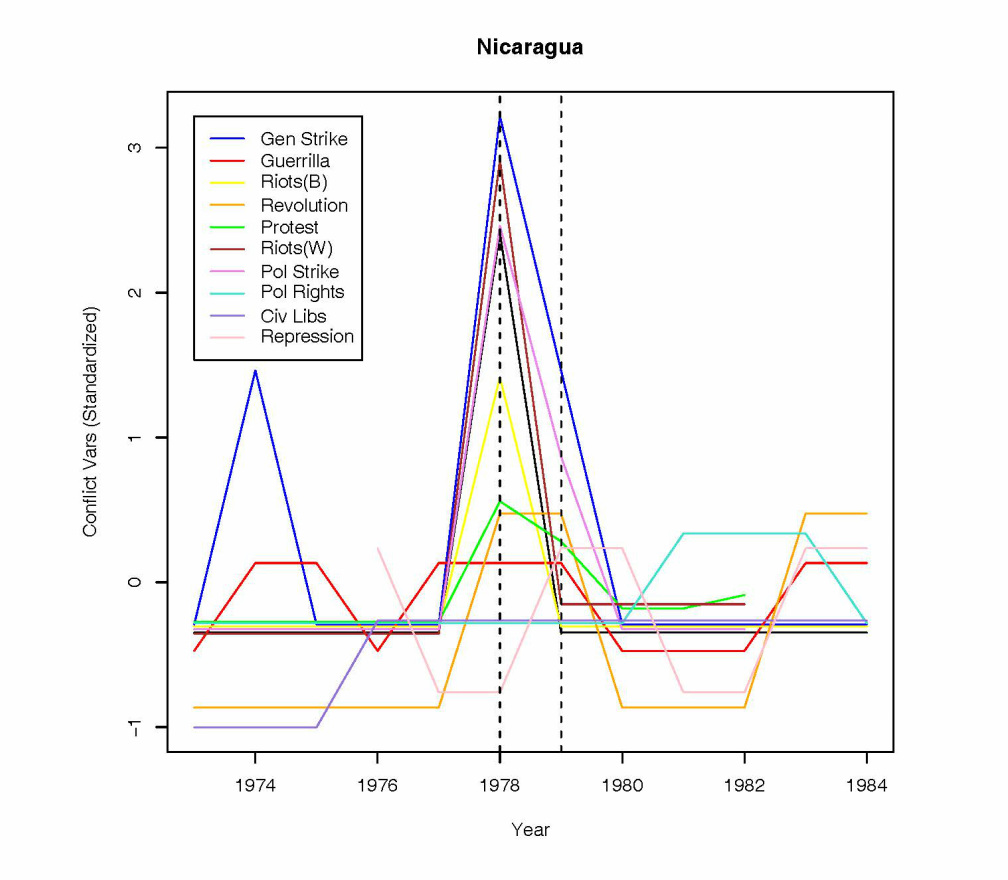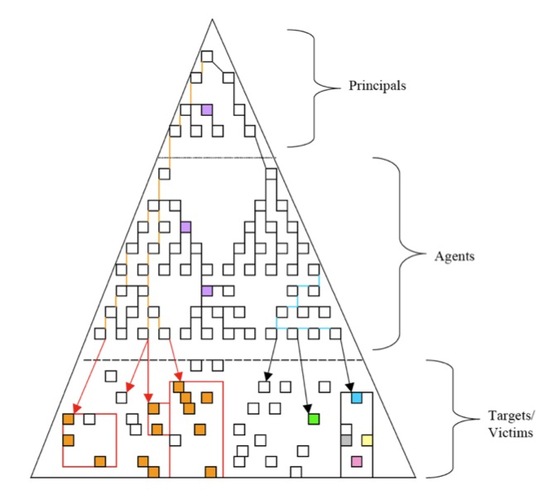Years ago (when I was working on some unpublished research with David Armstrong and Mark Lichbach) I had this idea that our understanding of civil war (marked by the dashed lines above) had limited our conception of contentious politics. The concept seemed to suck all of the air out of the subject - getting us to think about only one form of violence, forgetting the forest for the trees as it were. We then brought together all forms of contentious politics that we could get our hands on and began to then work through all civil wars to see what each of the cases looked like. Nicaragua is below.
Current political science associations do not help. The Conflict Processes section of APSA and their associated journal has largely been concerned with first interstate war and then civil war. The human rights violation people kind of have their own section and journal but the area has had a mixed reception for those who use data (no book awards yet for those adopting this methodology) and thus they are not always good at getting their work placed there. Quantitatively oriented human rights scholars thus try Conflict Processes or Peace Science. I always wondered where the people go in political science that are interested in protest or, worse yet, protest policing. This has not been something Conflict Processes has focused on nor Peace Science - although this has been changing as of late. If the protest/policing was connected with democratization, then folks could find a home. Or, if it involved some methodological innovation, then the individual could go to Political Methodology, but in doing so they kind of lose their broader audience who would not look there and might not have the time to search all relevant key words. God forbid the researcher use an American case because that would lead the Comparativists and International Relations/World scholars in the opposite direction. And, don't even think about doing an African American case and try to convince someone that it is relevant for other places, other times. I remember presenting something about US protest/protest policing at ISA one year and having someone ask me why I presented my peace at the meeting. I simply responded: "American contention does not have relevance for the rest of the world? We arm, train and act about as much as anyone when it comes to contentious political behavior, so why would I not do this?"
As students and scholars go about their business of researching, writing and reading, we might guide folks away from the artificially created, reified and institutionally sustained areas of civil war, genocide, terrorism, human rights violation and political dissent and move them towards the broader phenomenon of political violence and a version of contentious politics where state behavior is more fully integrated. If we are to keep the areas siloed, we might at least try to consult the Annual Review of Political Science to get some sense of what innovations, insights in the respective areas might hold for the particular form of political violence we are interested in. The key to ending mass atrocities might just be found in some piece regarding ending gang violence or police harassment.



 RSS Feed
RSS Feed
